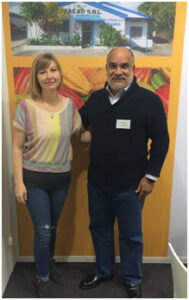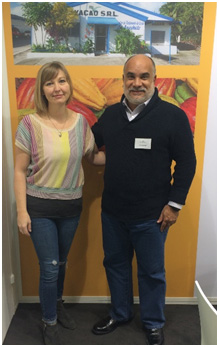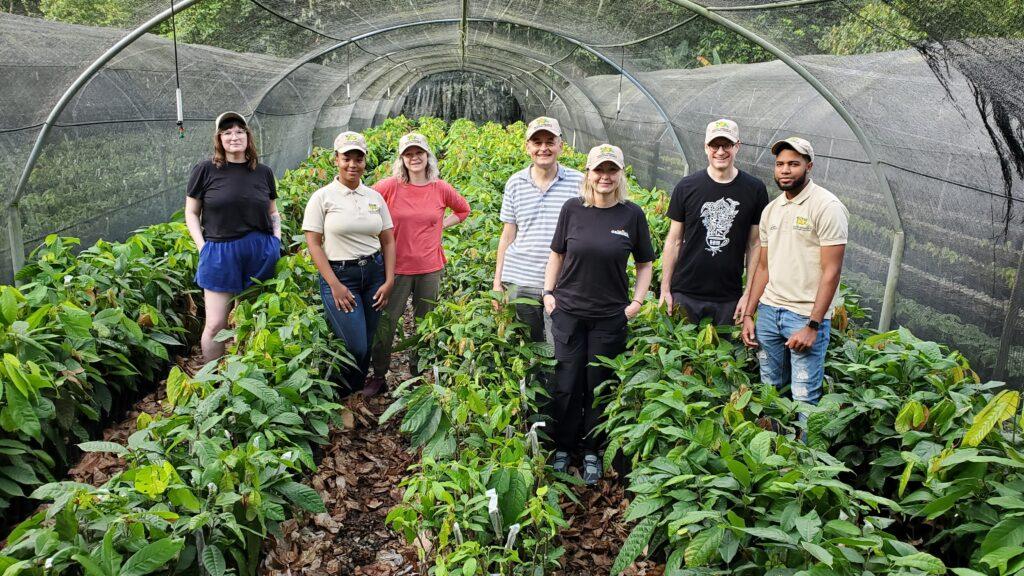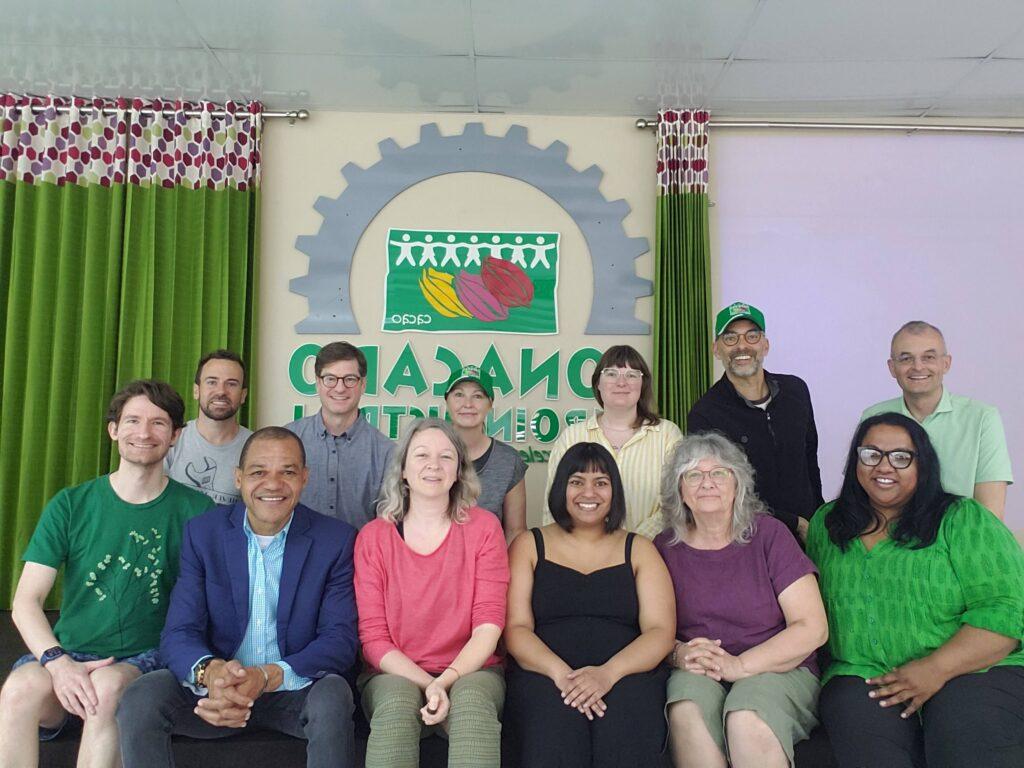 Image: Kelly Storie from La Siembra Cooperative (Camino) & John Borrelly from FUNDOPO
Image: Kelly Storie from La Siembra Cooperative (Camino) & John Borrelly from FUNDOPO
Biofach, the largest organic trade fair in the world, is an opportunity to discover global food trends, discuss market developments for organic agriculture, and meet up with fair trade and organic producers across our supply chain to better understand small farmers’ needs, practices, and challenges.
One of the partners I met there was John Borrelly. Once a sugar farmer himself, John is now the Operations and Technical Manager for Yacao, a Swiss-funded project designed to help farmers in the Yamasá region of the Dominican Republic to caputre more of the value of their cocoa crop.Yacao’s producers are from FUNDOPO (Fundación Dominicana de Productores Organicos), a strong co-operative association of approximately 1800 small-scale farmers growing both organic and conventional cocoa for export. FUNDOPO’s farmers each hold between 5-10 hectares of productive land which was previously used for subsistence crops. Traditional cultivation techniques and low levels of mechanization have made the Yamasá region ideal for total organic transition – resulting in some of the highest quality cocoa in the world.
This has had both a positive and negative effect on producers in the DR. Big intermediaries and brokers are flocking there to procure as much of the harvest as they can for their buyers. Commodity prices for cocoa exports have been stable and demand is strong, so there has been little focus in these remote jungle communities on long-term sustainability, climate change impacts and producer vulnerability. At the regional level NGO’s and development agencies are competing for project funding, while government support for farmers has been absent. Cocoa exports represent a significant part of the DR’s economic output and are an important source of foreign exchange earnings, so the local perception is that the farmers are doing just fine.
John notes that this makes the work of Yacao and the co-operative especially important to the DR’s sustainable cocoa market. Yacao has focused on mobilizing small-scale farmers to bring about transformative change. Producer education and training, new techniques for growing, pruning, drying and sorting and access to agronomists who bring new knowledge to producer communities results in higher yields of better quality cocoa. The programs also ensure that there is long-term investment in sustainable growing practices to pass on to the next generation. The traditionally exploitive relationship between buyers and farmers is turned upside down by the work of Yacao, which provides farmers with access to preharvest financing, low cost inputs, secondary processing and nurseries of adaptive cocoa varieties.
The co-operative is charged with ensuring that the premiums collected from fair trade and organic supply chain contracts are distributed back into the community for local infrastructure and social services. FUNDOPO is completely independent from Yacao and operates democratically for the benefit of its farmers. The social committee is 100% farmer managed and there is no outside involvement in the distribution of community funds and premiums. Farmer engagement and participation in the co-op is strong. And FUNDOPO’s management style is open and transparent, setting high standards for business practices and good governance.
John remarked that the alignment between Yacao and FUNDOPO has been a model for best practices in international supply chain management. And while there are many inspirational stories about strong producer driven co-operatives changing local economies and livelihoods, there are few models where the traders are working directly with the co-operatives in such intensive collaborative relationships.
At Biofach I was struck by the fact that in one room in the middle of Germany, stood our entire supply chain, from producer to consumer just a few feet away. It’s short, transparent and important.
In just a few weeks the La Siembra team will be on the ground in the DR and will have the opportunity to meet the entire assembly of FUNDOPO’s farmers. Going there with this kind of knowledge will help us build stronger relationships with our producer groups and connect farmers to the Canadian marketplace.
Watch for our DR report in the May newsletter!
-Kelly Storie



